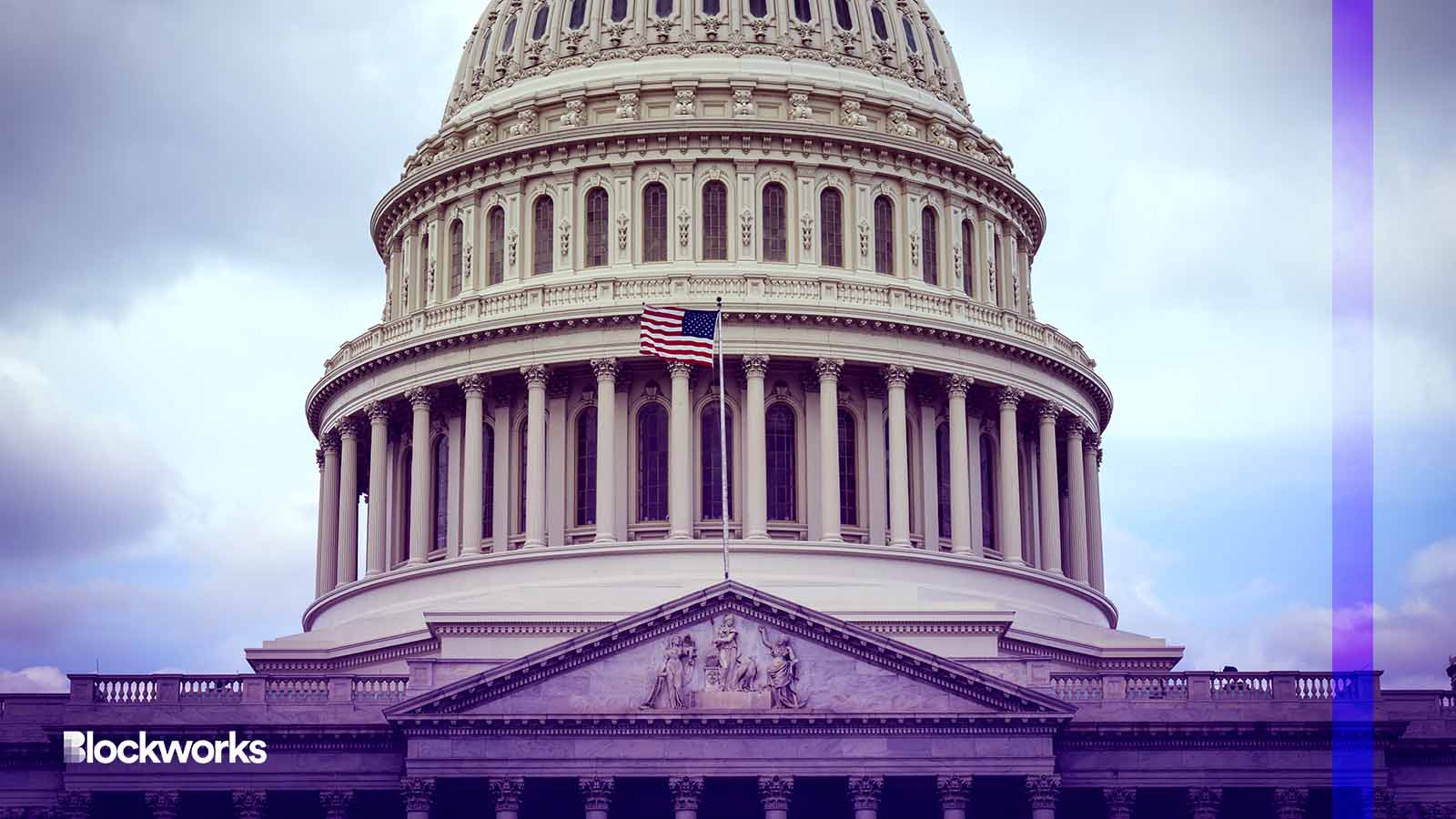Blockchain sees legal progress on the Hill, fierce attacks in the trenches
Three worlds persist in the regulatory realm of America’s blockchain industry, and they don’t always see eye to eye

Brandon Bourdages/Shutterstock modified by Blockworks
Three worlds orbit the regulatory realm of America’s blockchain industry.
One consists of political representatives in DC, developing laws to handle the nascent technology. Another is characterized by agencies such as the SEC, tasked with maintaining order in markets that it considers to be under its purview.
Between these worlds are courts, interpreting laws and meting out justice when called upon.
These three groups don’t always see eye to eye — and that’s especially been the case with crypto.
On a recent episode of Empire (Spotify / Apple), chief policy officers Rebecca Rettig at Polygon Labs and Jake Chervinsky at the Blockchain Association spoke to Blockworks about the industry’s steady legal progress on the Hill and the simultaneous attacks taking place in the administrative trenches.
Rettig says “there’s a lot going on in a positive direction in the legislative branch” that she hopes will counteract the current actions of some regulators.
Why should I care?
Podcast host Santiago Santos wonders if the crypto industry’s pleas — warning that innovation and capital is fleeing America — are making any impact with representatives in Washington.
“Yes, it does have an effect,” Chervinsky answers. “US policy makers don’t want to see US companies going overseas. Their goal is to create jobs and to create tax revenue.”
One problem, he says, is that the benefit of crypto technology remains unclear to many representatives. “When you say to a policymaker, ‘All this innovation is going to go offshore,’ they’re like, ‘Okay, what innovation? And why should I care about that?’”
The challenge, he says, is to articulate the benefits of the technology as it stands right now and not just point to a vague future potential.
Rettig mentioned that a recent meeting of the Innovation, Data and Commerce (IDC) subcommittee of the Energy and Commerce Committee offered hope. “It gave people the opportunity to start articulating what the actual use case was and why there’s a benefit.”
“In Web2, your privacy and your data and all of those things are compromised” — an especially important issue for the committee, “which is very focused on consumer protection, including for data privacy.”
The opening statement by IDC Chair Gus Bilirakis was pleasantly surprising, Rettig says. She said his statement focused on starting conversations in DC about more use cases for crypto — beyond finance.
“The broader conversation about use cases is starting to happen in DC,” she says, but the current SEC litigation narrative has “overtaken a lot of everybody’s psyche.”
The recent McHenry-Thompson Digital Asset Market Structure draft bill has also flown under the radar, Santos says, “because there’s so much noise right now.”
Although many industry watchers might overlook the proposal, Chervinsky says the draft bill is “extremely important.”
According to the bill, market manipulation, wash trading and other market integrity issues remain valid concerns, Chervinsky says. It creates a “framework that actually addresses those risks, but in a way that does not sacrifice the benefits of decentralization and disintermediation that are at the core of this entire industry.”
Nobody’s calling me
Rettig urges participants to be more involved in advocating for the industry at the political level. When she is “on the Hill,” she says, representatives tell her that “nobody’s calling me saying they care about this.”
“It’s really important to call into your representatives,” she says — and not just one time — “but over and over.”
“You need the reps. all to hear that you care about this,” she says, “that there’s innovation here. It impacts you [and] your job.”
“If they think this is an issue that their constituents care about, they will dig deeper into it.”
Get the news in your inbox. Explore Blockworks newsletters:
- The Breakdown: Decoding crypto and the markets. Daily.
- 0xResearch: Alpha in your inbox. Think like an analyst.






